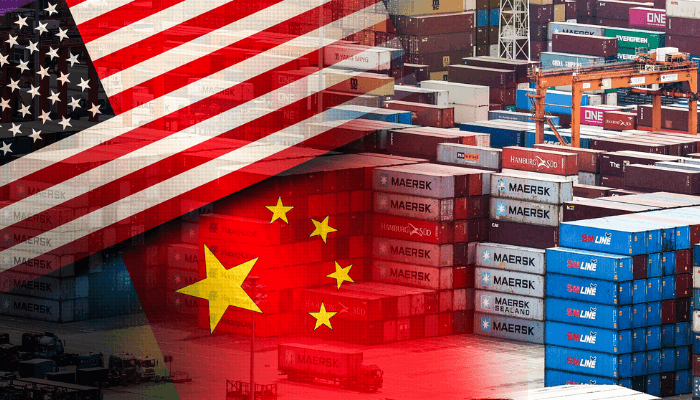China warns US of countermeasures as Trump’s 100% tariff threat ignites new trade clash
China warns US of countermeasures as Trump’s 100% tariff threat ignites new trade clash
China has warned it will take countermeasures if Donald Trump, United States president goes ahead with his threat to impose a 100 per cent tariff on Chinese goods, accusing Washington of hypocrisy and double standards as trade tensions between the two powers erupt once again.
In a strongly worded statement on Sunday, Beijing defended its recent decision to tighten export controls on rare earth elements and related equipment, a move that has unsettled global markets, while accusing Washington of escalating tensions with “provocative and damaging” policies.
Read also:Trump escalates trade conflict: U.S. to impose 100% tariffs on China from November
The statement, released by China’s Ministry of Commerce, said the new controls were a direct response to a series of US measures introduced after trade talks between the two sides in Madrid last month.
“China’s stance is consistent. We do not want a tariff war, but we are not afraid of one,” the ministry said.
Trump, who announced on Friday a 100 per cent tariff on all Chinese exports to the US starting November 1, claimed Beijing’s restrictions on rare earth exports were “surprising” and “very hostile”. He also unveiled new US export controls on critical software used in advanced manufacturing.
China’s Commerce Ministry fired back, accusing Washington of abusing its national security claims to justify discrimination against Chinese firms. It said the US had “overstretched the concept of national security, abused export control measures, and adopted discriminatory practices against China.”
“Resorting to tariff threats is not the right way to engage with China,” the ministry added.
Read also: Nigeria-China trade hits $15.48bn, up 34.7% in seven months, says Consul-General
A familiar confrontation
The exchange marks a sharp deterioration in relations after months of cautious engagement aimed at stabilising trade ties. The tit-for-tat rhetoric also threatens to derail a long-anticipated meeting between Trump and Chinese president Xi Jinping at the Asia-Pacific Economic Cooperation summit in South Korea later this month, which would have been their first face-to-face encounter since Trump returned to the White House in January.
Trump’s tariffs mean that Chinese goods entering the United States now face an additional 30 per cent levy compared with the start of the year, while American exports to China are subject to a 10 per cent tariff.
Beijing, notably, has stopped short of announcing any new retaliatory duties, at least for now. But a ministry spokesperson hinted that “unspecified countermeasures” could follow if the US proceeds with its plans.
Rare earths at the heart of the dispute
Rare earths, a group of 17 minerals essential for producing smartphones, electric vehicles, wind turbines and military systems — have become a key flashpoint in the trade standoff. China dominates their global production and processing, giving it significant leverage in supply chains critical to high-tech industries.
Read also:Beyond dependency: U.S.-China trade rivalry as opportunity for Nigeria
Last week, Beijing expanded restrictions on the export of technologies used in rare earth mining and processing, citing national security reasons. The move immediately rattled global markets and sent tech stocks tumbling.
Trump accused China of “trying to hold the world captive”, saying the curbs threatened to disrupt vital industries dependent on the minerals. Beijing countered that its actions were “normal measures” aimed at protecting both its own and global security.
Wider ripple effects
The dispute has already unnerved investors and companies reliant on cross-Pacific supply chains. Analysts warn that prolonged friction could drive up production costs and slow global growth, particularly in sectors such as electronics, renewable energy and defence manufacturing.
Still, Taiwan’s economy ministry sought to calm concerns on Sunday, saying the latest Chinese restrictions were unlikely to affect its semiconductor sector. “The rare-earth elements covered by the expanded ban differ from those required in Taiwan’s semiconductor processes,” the ministry said, adding that chipmakers like TSMC source most of their rare earth materials from Europe, the US and Japan.
Despite the sharp rhetoric, both sides insist they remain open to dialogue , though neither appears willing to back down. For now, Beijing’s message is clear: it will not yield to pressure.
“We do not want a tariff war,” the Commerce Ministry repeated, “but we are not afraid of one.”
Whether that defiance gives way to renewed talks or another cycle of escalation may depend on whether Trump and Xi still sit down later this month.

